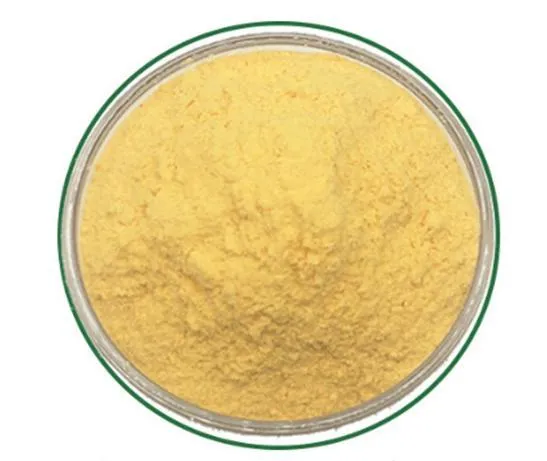Warning: Undefined array key "file" in /home/www/wwwroot/HTML/www.exportstart.com/wp-content/themes/1198/header.php on line 7
Warning: Undefined array key "title" in /home/www/wwwroot/HTML/www.exportstart.com/wp-content/themes/1198/header.php on line 7
Warning: Undefined array key "title" in /home/www/wwwroot/HTML/www.exportstart.com/wp-content/themes/1198/header.php on line 7
- Afrikaans
- Albanian
- Amharic
- Arabic
- Armenian
- Azerbaijani
- Basque
- Belarusian
- Bengali
- Bosnian
- Bulgarian
- Catalan
- Cebuano
- China
- China (Taiwan)
- Corsican
- Croatian
- Czech
- Danish
- Dutch
- English
- Esperanto
- Estonian
- Finnish
- French
- Frisian
- Galician
- Georgian
- German
- Greek
- Gujarati
- Haitian Creole
- hausa
- hawaiian
- Hebrew
- Hindi
- Miao
- Hungarian
- Icelandic
- igbo
- Indonesian
- irish
- Italian
- Japanese
- Javanese
- Kannada
- kazakh
- Khmer
- Rwandese
- Korean
- Kurdish
- Kyrgyz
- Lao
- Latin
- Latvian
- Lithuanian
- Luxembourgish
- Macedonian
- Malgashi
- Malay
- Malayalam
- Maltese
- Maori
- Marathi
- Mongolian
- Myanmar
- Nepali
- Norwegian
- Norwegian
- Occitan
- Pashto
- Persian
- Polish
- Portuguese
- Punjabi
- Romanian
- Russian
- Samoan
- Scottish Gaelic
- Serbian
- Sesotho
- Shona
- Sindhi
- Sinhala
- Slovak
- Slovenian
- Somali
- Spanish
- Sundanese
- Swahili
- Swedish
- Tagalog
- Tajik
- Tamil
- Tatar
- Telugu
- Thai
- Turkish
- Turkmen
- Ukrainian
- Urdu
- Uighur
- Uzbek
- Vietnamese
- Welsh
- Bantu
- Yiddish
- Yoruba
- Zulu
ಡಿಸೆ . 10, 2024 19:28 Back to list
Understanding the Role of Propylene Glycol in Oil Applications and Benefits
The Role of Propylene Glycol in Oil Applications
Propylene glycol (PG) is a versatile organic compound commonly used across various industries due to its unique properties. As a colorless, odorless, and hygroscopic liquid, propylene glycol has gained significant attention in oil-based applications. Its inclusion in oil formulations contributes to enhanced stability, improved performance, and expanded functionality.
Understanding Propylene Glycol
Chemically, propylene glycol is a synthetic liquid made from petroleum products. It is classified as a humectant, which means it retains moisture effectively. This property makes it valuable in food, pharmaceutical, and cosmetic products. However, its role in oil-based formulations, particularly in lubricants and hydraulic fluids, is also noteworthy.
Applications of Propylene Glycol in Oil
1. Lubricants One of the most common applications of propylene glycol is in the formulation of lubricants. By incorporating PG into oil, manufacturers can improve the lubricating properties of the fluid. It aids in reducing friction and wear on mechanical parts, ultimately prolonging the life of machinery and equipment. The presence of propylene glycol also enhances the oil's viscosity index, allowing for stable performance across varying temperatures.
2. Hydraulic Fluids In hydraulic systems, the use of propylene glycol is critical, especially in environmentally sensitive areas where spills can cause significant harm. Biodegradable hydraulic fluids often contain PG, providing both a reduced environmental impact and effective operation. These fluids maintain their hydraulic properties even in extreme conditions, ensuring reliable system performance.
3. Cooling Fluids Propylene glycol is commonly used in cooling applications, notably in industrial and automotive contexts. Its ability to lower the freezing point of water makes it an ideal additive in coolant formulations. In oil-based cooling systems, PG helps prevent freezing in low-temperature environments while efficiently transferring heat away from critical components.
4. Cosmetic and Personal Care Products Oil-based formulations in cosmetics sometimes incorporate propylene glycol to enhance product texture and stability. It serves as a solvent as well, helping to dissolve other ingredients and ensuring a homogenous mixture. Its moisturizing properties lend a smooth and pleasant feel to skincare products.
propylene glycol in oil

Benefits of Using Propylene Glycol in Oil
- Stability The addition of propylene glycol stabilizes oil formulations, reducing the likelihood of separation or degradation over time. This stability ensures that the oil retains its functional properties, providing consistent performance.
- Environmentally Friendly As environmental awareness grows, the demand for biodegradable and non-toxic products increases. Propylene glycol fulfills these criteria, making it a preferred choice for formulating oils that need to be safer for the environment.
- Dual Functionality With both lubricant and coolant properties, propylene glycol offers dual functionality in many applications. This adaptability can reduce the need for multiple products, therefore streamlining operations and reducing costs.
Considerations for Use
Despite its numerous benefits, there are considerations that manufacturers need to keep in mind when using propylene glycol in oil products. While PG is generally regarded as safe, it is essential to adhere to regulatory guidelines governing its use in food, pharmaceuticals, and cosmetics. Comprehensive testing for compatibility and performance is also critical, as the interaction between PG and other formulation ingredients can vary.
Conclusion
Propylene glycol is an indispensable ingredient in many oil applications, ranging from lubricants to hydraulic fluids. Its unique properties contribute to improved performance, environmental safety, and operational efficiency. As industries continue to evolve and prioritize sustainability, the role of propylene glycol is expected to expand even further, paving the way for innovative formulations that meet both performance and environmental standards. The future of oil applications utilizing propylene glycol looks promising, with ongoing research and development likely to unlock new possibilities and applications.
Latest news
-
2025 European Fine Chemicals Exhibition in Germany
NewsMay.13,2025
-
2025 New York Cosmetics Ingredients Exhibition
NewsMay.07,2025
-
Zibo will host the 2025 International Chemical Expo
NewsApr.27,2025
-
2025 Yokohama Cosmetics Raw Materials and Technology Exhibition
NewsApr.22,2025
-
2025 India Mumbai Fine Chemicals Exhibition
NewsApr.18,2025
-
Nanjing will host the 2025 Yangtze River Delta International Chemical Industry Expo and the National Chemical Industry Conference
NewsApr.15,2025

